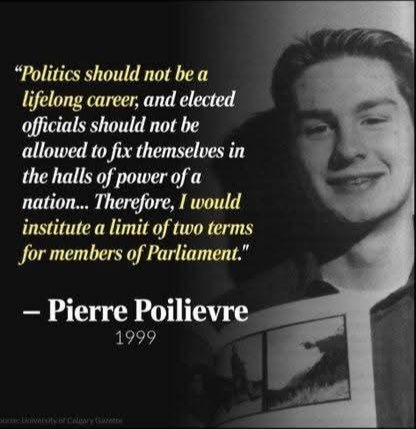The separation of powers (executive, judicial, and legislative), are critically important for governance and democracy.
Branches of government must take care to not unduly influence other branches of government. The independence and impartiallity of the judiciary must be protected.
The separation of powers (executive, judicial, and legislative), are critically important for governance and democracy.
Branches of government must take care to not unduly influence other branches of government. The independence and impartiallity of the judiciary must be protected.
I'm not sure what the answer is to make them good-faith actors
Stick firmly to the facts. Don't get into emotional arguments, because it's a losing game. When discussing electoral reform, use hard data about vote percentages versus seat counts. Show how the system mathematically distorts representation for all parties including conservatives themselves. Present international examples where proportional systems work effectively. Keep bringing the conversation back to universal democratic principles rather than partisan advantage. When they make emotional arguments, respond with evidence, not matching rhetoric.
What's the non-extreme method of getting conservatives to stop hurting themselves and everyone around them?
Push for systems that punish bad behaviour. Proportional representation naturally discourages obstructionism because parties can't gain majority power with minority support. It creates structural incentives for cooperation and compromise rather than trying to change individuals' character or beliefs. Under PR, parties that refuse to work constructively become irrelevant because coalition-building becomes necessary. The system itself becomes the accountability mechanism, not partisan battles or public shaming. Electoral reform is the non-extreme solution because it works with human nature rather than against it.
How would MMP/STV handle a situation like this?
This issue falls out of the scope of these electoral systems. It's like asking "how would MMP/STV handle foreign interference", when neither MMP/STV are supposed to handle foreign interference. So, if what you really want to know is how local representation maintained regardless of electoral system, the answer is to have stronger rules and regulations surrounding elections. Particularly, banning "parachute" candidates, which are candidates that run in electoral districts of which they are not local to.
Can candidates running locally also be on the party list?
Under MMP, no. It would be like if a candidate was allowed to run in multiple electoral districts.
To all those who say local representation is important, so we must not implement proportional representation.
How does this justify Pierre Poilievre, who represented Carleton, Ontario, now potentially applying to be a candidate for an Alberta electoral district? This is halfway across the country.
Our current system does nothing particular for local representation.
I'm pivoting in other ways that either advance PR or civics! The Fair Vote community is in a good place with the work we've done so far!

Simple things you can do, to grow the proportional representation movement—so we never have to vote for the lesser of the evils, have a two party system, "split the vote", or strategic vote